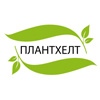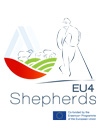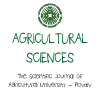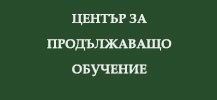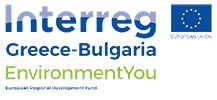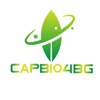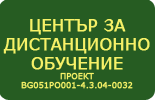Agricultural policy
|
Course title: |
Agricultural policy |
|
|
Course code: |
IFAGP |
|
|
ECTS: |
5 |
|
|
In-class hours |
Lectures: |
30 |
|
Laboratory work/Tutorials: |
30 |
|
|
Self-preparation hours |
Practical training: |
30 |
|
Other: |
35 |
|
|
Total hours: |
125 |
|
|
Language: |
English |
|
|
Study cycle: |
BSc, Master |
|
|
Semester: |
Winter, summer |
|
|
Faculty: |
Faculty of Economics |
|
|
Name of the lecturer(s): |
Prof. Ivan Penov, PhD |
|
|
Mode of delivery: |
Face-to-face, distance learning |
|
|
Prerequisites: |
No prerequisites |
|
|
Learning outcomes of the course unit: |
Annotation: European agriculture is a strategic sector with multifunctional nature. Its main objectives are to provide food to the people, raw materials to the industry, employment and income. Agriculture is associated with the environment, with the social and cultural traditions of the rural regions. Due to its strong dependence on climatic conditions, socio-economic and demographic factors etc., external intervention is required to ensure long-term sustainability. In times of market economy and world globalization, governments or other responsible institutions intervene in agriculture, in order to eliminate the defects accompanying the free market mechanism, such as uneven distribution of income, irrational use of resources, possible monopolization of the market, unbalanced production, price volatility etc. The Agricultural Policy is a course of action or intervention of the state, the government or the responsible institutions in the field of economic, environmental and social processes happening in agriculture, aiming by a set of instruments or mechanisms to achieve long-term sustainable development of the sector. Course description: This course is a combination of series of lectures and seminars on topics related to the peculiarities of agriculture, requiring external intervention in the sector, policy options for action, objectives to be pursued, and tools for their achievement. This should help students studying at the Agricultural University – Plovdiv, to understand the problems of agriculture and their possible solution in the conditions of EU membership. Course Objectives: Upon completion of the course, students should gain the ability to: 1. Understand The Common Agricultural Policy of EU (objectives, principles, mechanisms). 2. Understand the main legislation of EU in the field of agriculture. 3. Understand the Rural Development Program of EU and its possibilities. 4. Define existing problems in the agricultural production sector. 5. Understand what the optimal situation in the sector should look like. 6. Articulate the best possible policy actions in the specific situation. 7. Choose suitable methods for intervention in agriculture and the best way for their application. 8. Apply sustainable production methods and good agricultural practices, as well as animal welfare techniques for simultaneously achieving economic, ecological and social goals. |
|
|
Course contents: |
Contents of the program: Topic 1 Characteristics of agriculture and reasons for institutional interference in the sector Topic 2 Concepts of government intervention in agriculture Topic 3 Nature and objectives of agricultural policy Topic 4 Tools of the Agricultural policy Topic 5 Types of agricultural policies Topic 6 History of European agricultural policy Topic 7 Common Agricultural Policy of the European Union First pillar - Farmer’s income guarantee Second pillar - Rural Development Topic 8 Common Market Organization Topic 9 Pre-accession European programs for new member-states Topic 10 European legislation in the agricultural sector Topic 11 Application of the rural development program in Bulgaria and the new member-states. Axes and measures. Topic 12 Elaboration of projects for financing under the European rural development program |
|
|
Recommended or required reading: |
1. “Agricultural policy” Maria Coneva, Publishing “Trakia-M” Sofia, 2001, ISBN 954-9574-72-5 2. “Agricultural policy” Rangel Trendafilov, Publishing “Bolid” Stara Zagora, ISBN 954-612-007-3 |
|
|
Planned learning activities and teaching methods: |
Monological explanation (lecture, presentation) Dialogue methods (tutorials, conversation,discussion) |
|
|
Assessment methods and criteria: |
Written test |
|
 - Events on the occasion of the 80th anniversary of AU
- Events on the occasion of the 80th anniversary of AU
